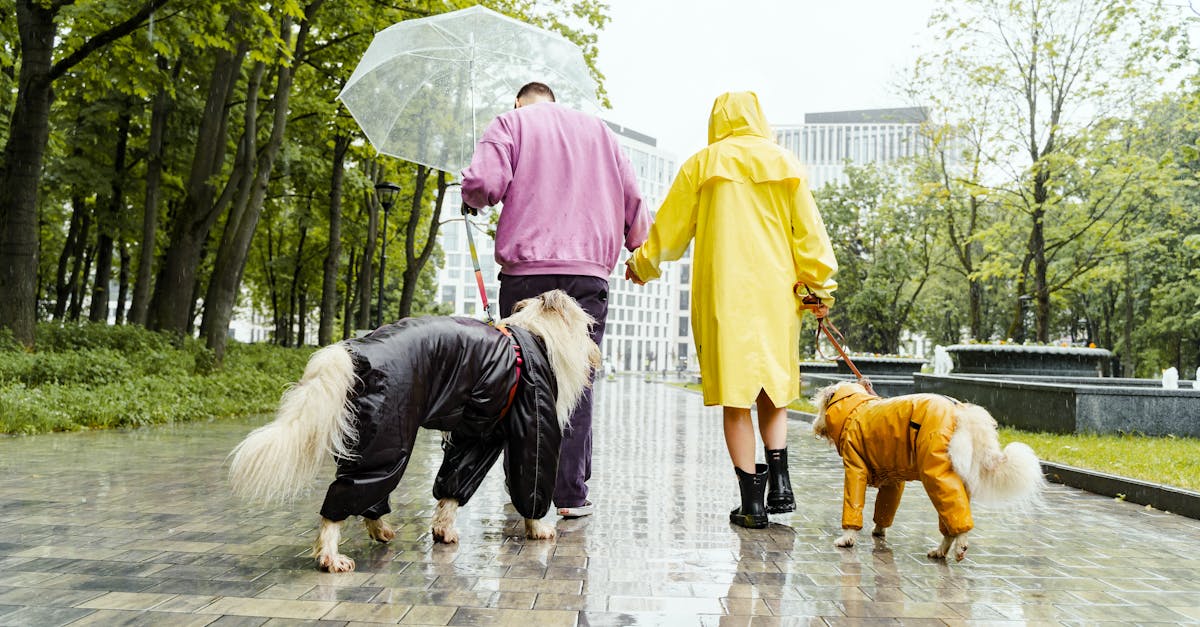Why Do Dogs Have Wet Noses? Exploring the Science Behind Their Enhanced Sense of Smell
If you’ve ever been greeted by a friendly dog with a cold, wet nose, you might have wondered why their noses are always moist. Dogs’ wet noses play a crucial role in their daily lives, serving more than just a sign of good health. The sensation of a damp nose nuzzling your hand is a unique trait that sets dogs apart from other animals.
A dog’s wet nose is not just a random occurrence; it’s a fascinating feature that serves various purposes beyond what meets the eye. Understanding the reasons behind why dogs have wet noses can provide insight into their incredible sense of smell and how they interact with the world around them.
The Science Behind Wet Noses
Function of a Wet Nose in Dogs
A dog’s wet nose serves multiple functions beyond just keeping them cool. The moisture on their nose actually helps enhance their sense of smell by capturing scent particles from the air. Think of it like a sticky surface that attracts and holds onto smells, allowing them to better analyze scents around them.
Comparison to Dry-Nosed Animals
In contrast to dry-nosed animals, dogs’ wet noses play a crucial role in their ability to detect scents. While some animals like cats have dry noses, dogs’ wet noses provide them with a unique advantage. The moisture on a dog’s nose helps dissolve the scent molecules in the air, making it easier for them to pick up and process different smells effectively.
Health Significance of a Dog’s Wet Nose
Indicators of Illness
If your dog’s nose suddenly changes from wet to dry, it might be a sign of an underlying health issue. A dry nose in a dog can indicate fever, dehydration, or environmental factors. Keep an eye out for other symptoms like lethargy, lack of appetite, or nasal discharge.
When to Consult a Veterinarian
Consult a veterinarian if your dog’s nose remains consistently dry for more than a day or if it’s accompanied by other concerning symptoms. It’s always better to be safe than sorry when it comes to your furry friend’s health. Routine check-ups and quick action can help address any health issues promptly.
Wet Noses and Enhanced Smell
The Role of Mucus in Scent Detection
Dogs have a remarkable sense of smell, thanks to the thin layer of mucus that keeps their noses moist. This mucus layer assists in trapping scent particles, allowing dogs to pick up even the faintest smells. The moisture on their noses helps dissolve these particles, enhancing their ability to detect and analyze scents effectively.
Wet Noses vs. Dry Noses in Smell Sensitivity
A dog’s wet nose plays a crucial role in their smell sensitivity compared to animals with dry noses. The moisture helps capture scent molecules, making it easier for dogs to track scents over long distances. On the contrary, a dry nose can hinder a dog’s scent-detecting capabilities, affecting their overall smell sensitivity and making it harder for them to follow scents efficiently.
Wet Nose Maintenance for Dog Owners
Best Practices for Keeping Your Dog’s Nose Healthy
To maintain your dog’s nose health, ensure it stays moist. Make sure your pet always has access to fresh water to keep them hydrated, as this helps in preventing their nose from drying out. Additionally, you can apply a vet-recommended pet-safe nose balm to keep their nose moisturized and protected, especially in extreme weather conditions.
Common Misconceptions About Dog Nose Care
Contrary to popular belief, a warm or dry nose does not always indicate illness in dogs. It’s normal for dogs’ noses to vary in temperature and moisture levels throughout the day. Instead of solely focusing on the wetness of your dog’s nose, pay attention to other signs like changes in behavior, appetite, or energy levels to determine if they need medical attention. Regular veterinary check-ups can help you monitor your dog’s overall health, including their nose condition.
Conclusion
So, there you have it – the mystery behind why dogs have wet noses. Their moist noses play a crucial role in enhancing their sense of smell, allowing them to detect scents effectively. It’s fascinating how a thin layer of mucus keeps their noses moist, aiding in capturing scent particles and tracking scents over long distances. Remember, a wet nose is a sign of a healthy pup, but don’t panic if it’s warm or dry sometimes. Just keep an eye out for any unusual changes and consult your vet if needed. By maintaining your furry friend’s nose moisture with water and nose balm, you’re helping them stay at the top of their scent game. So, embrace the wet nose – it’s your dog’s superpower!
Frequently Asked Questions
Why are dogs’ noses wet?
Dogs’ wet noses play a crucial role in scent detection. The moisture helps dissolve scent molecules in the air, enhancing their ability to capture and analyze scents effectively compared to dry-nosed animals. The thin layer of mucus on their noses keeps them moist, aiding in trapping scent particles for improved smell sensitivity.
What happens if a dog’s nose is dry?
A dry nose can impede a dog’s scent-detecting capabilities. Sudden dryness could indicate underlying health issues, necessitating veterinary attention. Maintaining a dog’s nose moist is vital for optimal scent detection and overall health.
How can I keep my dog’s nose wet and healthy?
Ensure your dog has access to fresh water to stay hydrated, as hydration influences nose moisture. Use vet-recommended nose balms to prevent dryness, especially in extreme weather conditions. Regularly monitor your dog’s nose for changes and consult a vet if necessary for optimal nose health.

